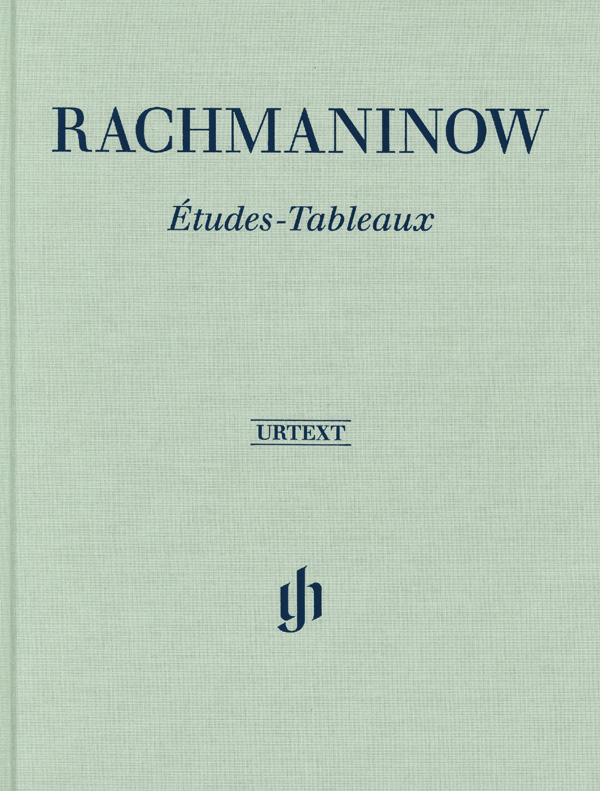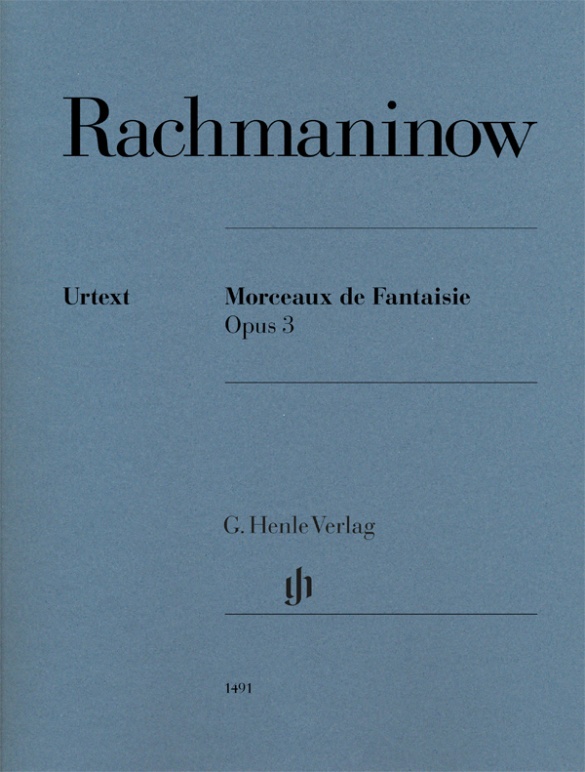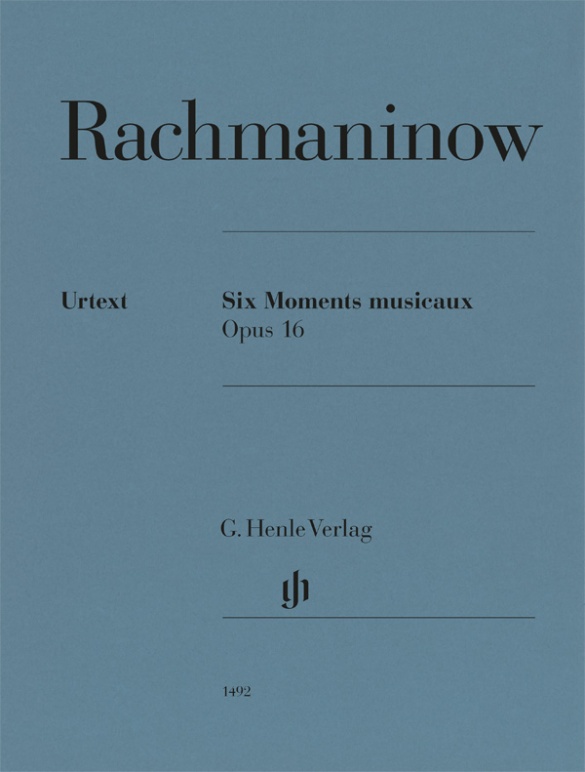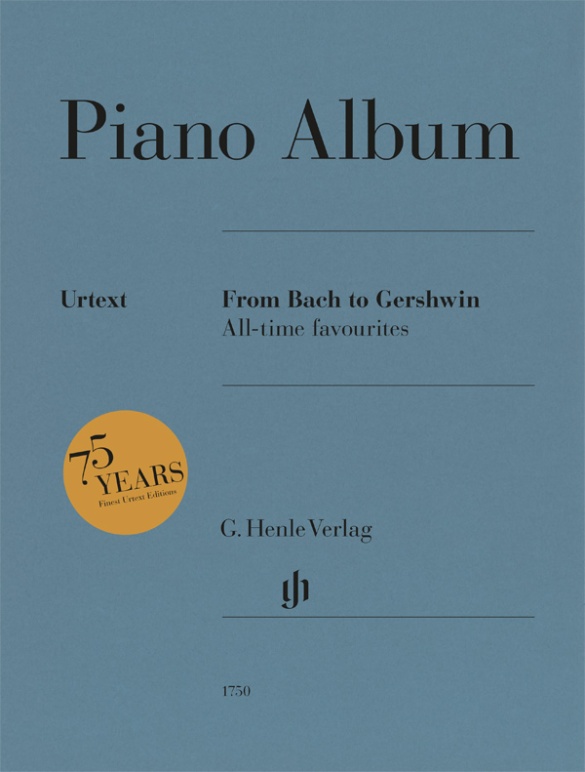Sergei Rachmaninoff
Études-Tableaux
With his Études-Tableaux Rachmaninoff continued down the path that Chopin and Liszt had already set out on with their concert etudes: the most demanding technical tasks are presented in the form of expressive character pieces. Rachmaninoff composed two cycles, each originally with nine Études-Tableaux; however, shortly before Opus 33 went to print, he removed three of the pieces.
Several posthumous editions later reversed this decision. However, in our edition we follow the exact structure with six pieces as laid out by Rachmaninoff for publication. The two surviving etudes that were not originally published are reprinted in an appendix to our Urtext edition.
Content/Details
About the Composer
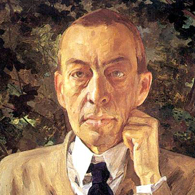
Sergej Rachmaninow
Composer and pianist who continued and expanded the late-Romantic tradition; he prepared the way for Prokofiev and Shostakovich. His oeuvre comprises orchestral works, piano pieces, choral works, several operas, and numerous songs.
| 1873 | Born in Semyonovo on April 1. From 1880 receives professional instruction in music. |
| 1885–92 | Studies music at the Moscow Conservatory. |
| 1890–92 | Piano Concerto No. 1 in F-sharp minor, Op. 1, with the diminished fourth in the main theme typical of his style. |
| 1892 | Successful performance of his one-act opera “Aleko” (a graduation work). Prelude in C-sharp minor for piano. |
| 1897 | Unsuccessful premiere of the Symphony No. 1, Op. 13 (with abrupt contrasts). First experiences as an opera conductor at Moscow’s Mamontov Theater. He becomes acquainted with Fyodor Shalyapin, later his friend. |
| 1900/01 | Composition of the Piano Concerto No. 2 in C minor, Op. 18, in a modified style (broad melodic arcs, transparent compositional style). |
| 1904–06 | Appointed conductor at the Bolshoi Theater in Moscow. |
| 1906 | Premieres of the operas “The Miserly Knight,” Op. 24, and “Francesca da Rimini,” Op. 25. |
| 1907 | Symphony No. 2 in E minor, Op. 27, with whimsical figuration in the woodwinds; Piano Sonata No. 1 in D minor, Op. 28. |
| 1909 | Piano Concerto No. 3 in D minor, Op. 30; symphonic poem “The Isle of the Dead,” Op. 29 |
| from 1910 | More complex compositional technique (enhanced polyphony, ambiguous harmonies, fast rhythmic alterations) in Thirteen Preludes for piano, Op. 32; “Études-tableaux,” Op. 33 (1911); Fourteen Songs, Op. 34 (1910–16). |
| 1917 | Rachmaninoff leaves Russia and lives in Stockholm, Copenhagen, the United States (career as pianist), and Switzerland. |
| 1926/41 | Piano Concerto No. 4 in G minor, Op. 40. In 1935/36, Symphony No. 3 in A minor, Op. 44. |
| from 1939 | He emigrates permanently to the United States. |
| 1943 | Death in Beverly Hills on March 28. |
About the Authors

Dominik Rahmer (Editor)
Dr. Dominik Rahmer, born in 1971 in Mainz, studied musicology, philosophy and maths in Bonn. He did his Magister Artium in 1999 and his doctorate in 2006 with a thesis on the music criticism of Paul Dukas.
From 2001 to 2011 he was employed at Boosey & Hawkes/Bote & Bock in Berlin, where he also worked on the Critical Edition of the Works of Jacques Offenbach (OEK). Since 2011 he has been an editor at G. Henle Publishers in Munich, with a particular focus on French and Russian music and works for wind instruments.
.jpg)
Marc-André Hamelin (Fingering Piano)
Product Safety Informations (GPSR)

G. Henle Verlag
Here you can find the information about the manufacturer of the product.G. Henle Verlag e.K.
Forstenrieder Allee 122
81476 München
Germany
info@henle.de
www.henle.com
Pianisten, die Rachmaninows Etüden studieren wollen, sollten unbedingt mit dieser Neuedition arbeiten. Gut möglich, dass einiges dann anders klingt, als wir es gewohnt sind.
Piano News, 2014recommendations
autogenerated_cross_selling
Further editions of this title
Further editions of this title


